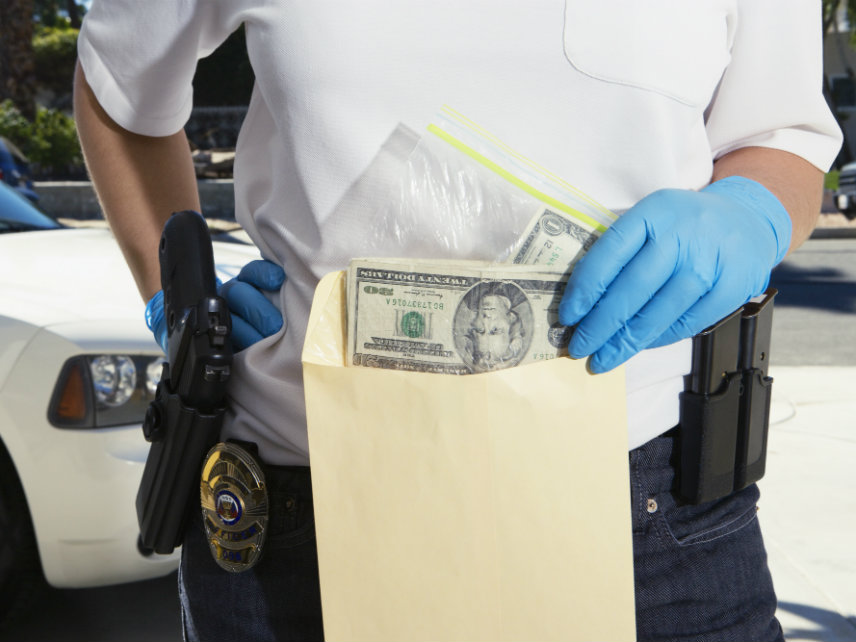Authorities in Utah Seized Nearly $3 Million in Cash and Assets From Citizens Last Year
Are cops targeting drug kingpins or running roughshod over property rights?

Utah police seized more than $1.4 million in cash during 2016 and federal law enforcement agencies operating in Utah took another $1.3 million in assets from people suspected of crimes, a new report shows.
Utah is one of just a few states in the country to require an annual report on asset forfeiture, the practice by which cops seize cash, cars, and other property believed to have been used in a crime or obtained with the proceeds of a crime.
The new report, released this month by the state Commission on Criminal and Juvenile Justice, shows there were 400 forfeiture cases in Utah during 2016, with cash being seized in 99 percent of those cases.
In one case highlighted by the Salt Lake Tribune, cops seized cars and other property—including "a $25 flashlight…a $4,000 mountain bike, a $2,500 motorcycle and a guitar autographed by Led Zeppelin worth $3,000"— and charged several people after a methamphetamine bust, prosecutors say.
Cops like to publicize such busts because it feeds a narrative that asset forfeiture is used primarily against big-time drug dealers. But they're rather out of the ordinary, the report shows.
Most forfeitures (69 percent) take place during traffic stops and most of the time only money is seized. According to the state report, cash was taken in 99 percent of forfeitures during 2016, with the median seizure amounting to only $1,031.
That means, in many cases, the amount seized was considerably less than four-figures. In one instance, the report shows, police took $16 from a motorist.
"What are they doing where they have to take that $16 to protect public safety," says Jennifer McDonald, a research analyst for the Institute for Justice, a libertarian law firm that has challenged asset forfeiture laws in several states and advocates for reforms to the practice.
As in other places—like in Chicago, where cops have seized as little as 34 cents from motorists and targeted poor neighborhoods with forfeiture actions—the amount of the average seizure raises questions about how forfeiture is being used.
Small scale seizures give the victim almost no recourse. Under asset forfeiture laws, the burden of proof is on the property owner, and few people are going to hire and lawyer and go to court to recover a small amount of cash, McDonald says. "It's just ridiculous."
Important details about what has been taken—like the motorbike and the Led Zeppelin guitar—are only available from more detailed audits of asset forfeitures. Those audits are required in Arizona and Colorado, which recently passed forfeiture reforms that are the gold standard for states, McDonald says, but that's not required in Utah or many other places, for now.
"We would like to see audits on a regular basis, just to ensure accuracy within those accounts," McDonald says.


Show Comments (13)